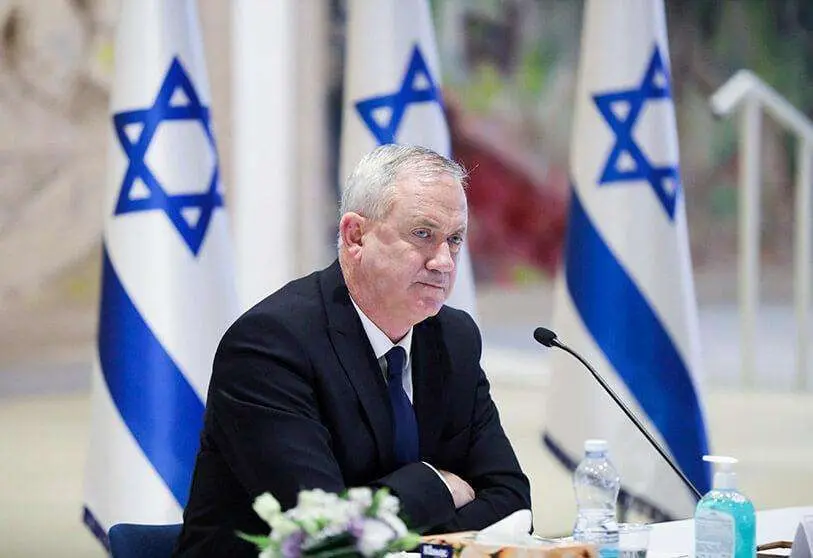Israel divided over Iran nuclear deal amid new negotiations

The resumption of talks on the nuclear deal is a fact. Iran's chief negotiator, Ali Bagheri Kali, and Rob Malley, the US special envoy for Iran, are in Doha to resume negotiations that have been stalled since March.
Delegations from both countries will hold indirect talks mediated by Qatar with the aim of salvaging the nuclear deal. On the negotiating table are a number of issues that stand in the way of the agreement, such as sanctions against the Iranian regime and the status of the Revolutionary Guard, considered a terrorist group by Washington.
Statement: Qatar welcomes hosting indirect talks between the United States and Iran in Doha to revive the nuclear deal#MOFAQatar pic.twitter.com/N1nYVBCJ5V
— Ministry of Foreign Affairs - Qatar (@MofaQatar_EN) June 28, 2022
This important step was announced this weekend during a trip to Iran by EU High Representative for Foreign Affairs and Security Policy Josep Borrell, who agreed with Iranian Foreign Minister Hossein Amir-Abdollahain to resume talks in the coming days. "We have to reach an agreement now," the Spanish diplomat stressed.
This decision represents a breakthrough for the Vienna talks and for the countries involved. However, Israel does not welcome this "rapprochement" with Tehran. As POLITICO reveals, Israeli Foreign Minister Yair Lapid accused Borrell of ignoring Iran's recent threats against Israeli citizens in Turkey.
Josep Borrell à #Téhéran essaie de convaincre les Iraniens de retourner au #JCPOA. ???? pic.twitter.com/SoG4tgpwaN
— Farid Vahid (@FaridVahiid) June 25, 2022
As a diplomat told the media outlet, "Borrell sent a message to Yair Lapid ahead of the trip to Tehran in which he described his attempt to bring Iran back into the nuclear deal negotiations and remove the last obstacles." In response, Lapid reproached Borrell that his position was "very disappointing", recalling Iran's decision to shut down 27 chambers at several nuclear facilities and the condemnation by the IAEA (International Atomic Energy Agency). "This is a strategic mistake that sends the wrong message to Iran," the Israeli minister stressed.

However, an EU official stressed that Borrell raised Israel's security concerns during his visit to Tehran. For the EU chief diplomat, a nuclear deal would be beneficial for global and regional stability, including Israel.
He also admitted during his trip that such an agreement with Iran "would be good from the point of view of stabilising the energy crisis", according to POLITICO. The more oil supply, the better for energy prices", he added, alluding to Iran's energy potential.

For its part, Israel has been opposed to any kind of agreement with Iran since negotiations began, as it considers Tehran to be an unreliable partner and will not honour commitments.
However, in light of the resumption of talks in Doha, several national media outlets have pointed to internal divisions over the resumption of negotiations. As the daily Yediot Aharonot reports, there are disagreements among several Israeli generals over whether a deal with Iran would benefit the country.

For example, according to the Israeli daily, the head of the Military Intelligence Directorate, Major General Aharon Haliva, would favour a return to an agreement with Tehran, unlike the chief of the General Staff, Lieutenant Aviv Kochavi.
Yediot Aharonot explains that supporters of a deal believe that a bad deal is better than no deal at all, as it allows Israel to prepare for a broad military response against Iran.
Defence Minister Benny Gantz is also in this camp, assuring reporters that Israel will work with world powers "to make its position clear and influence the drafting of the agreement". In this regard, Gantz stressed that Jerusalem is not opposed to a nuclear deal per se, but is opposed to "a bad deal".

Despite this, the Defence Minister clarified on his Twitter account that the Iranian threat remains "the most important and urgent strategic problem for Israel's security today".
Kochavi, heading the Israeli side that opposes a deal, considers it dangerous and has ordered the IDF to prepare new operational plans to attack Iran and halt its nuclear programme if necessary, according to Yediot Aharonot.

The position of Mossad director David Barnea is close to Kochavi's. As the Hebrew-language newspaper notes, the head of Israel's intelligence agency believes that the deal being negotiated is catastrophic, not only for Israel, but for the whole world.
Critics of the deal fear that, with the lifting of economic sanctions, the Iranian regime could accelerate its nuclear and weapons programme, providing more funds to certain groups in the region to carry out attacks against Israel.








